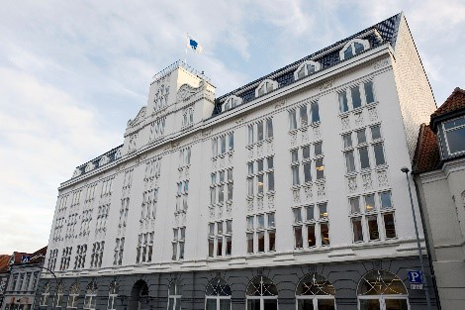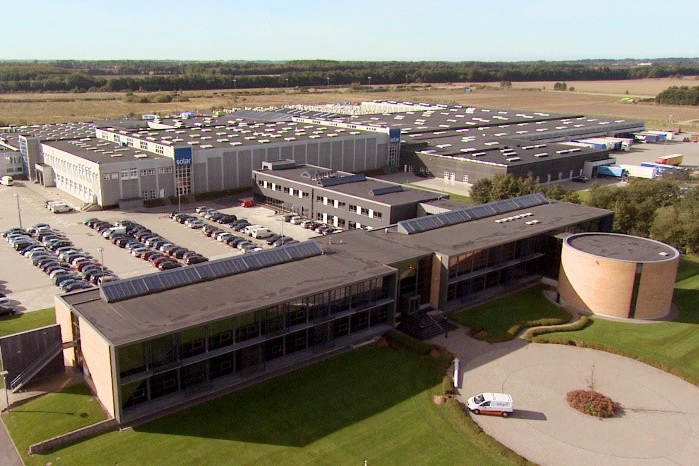Appointing a new CEO in 2014 entails a significant change of strategy as well as a new identity for Solar.
When Anders Wilhjelm is appointed new CEO, Solar goes from being a product-oriented company to focusing much more on services.
A major transformation of the company is initiated. From being a technical wholesaler, Solar gets a new identity and develops into a digital sourcing and services company. This means that now, the company focuses on buying on behalf of the customers. Furthermore, attention is paid to value-adding services which complement the products.
Logistics and delivery services are essential in this change. Therefore, Solar’s popular 1 hour delivery service, Solar Fastbox, which originally was developed for the Danish market, expands to include several major cities in the additional markets.


In this period, Solar also relocates its headquarters from Kolding to Vejen in Denmark where the Danish subsidiary is already situated, in order to get closer to the daily business.
The strategy is centred around profitable growth. This means that in 2015, Solar divests its German business activities, which have been loss-making for several years.
On the other hand, in the beginning of 2016, Solar acquires the Dutch company MAG45, which specialises in solutions within integrated supply. The acquisition helps generate increased exposure within the industrial area.
Later that year, Solar also acquires the Norwegian training business Euro Business School, which merges with Solar’s own training activities, Solar School. Together they become Scandinavian Technology Institute.
The green transition
For several years, Solar has focused on energy optimisation, energy-efficient solutions and renewable energy. Climate and energy is a growing business area with increasing sales within heat pumps and with the 2017 acquisition of the Danish solar power entrepreneur DrivhusEffekten, Solar really becomes an active player in the green transition.
The solar power entrepreneur, who changes its name to Solar Polaris, is among the biggest in Scandinavia and specialises within installation of photovoltaic facilities for private companies, public institutions, housing associations and homeowners. Solar Polaris executes all phases of the project, right from the initial contact to servicing the finished facility during its entire lifespan.
Digital networking strategy
With an efficient and increasing e-business as the foundation, Solar chooses to bet even more on digitalisation. Solar lays down a digital networking strategy. This means that through digitalisation and a network based business development approach, Solar works openly and innovatively with digital frontrunners in order to increase the customers’ efficiency and profitability.
In this period, Solar invests in a range of digital start-up companies. Among these start-ups, we find the two Danish companies Minuba and GenieBelt. GenieBelt then later merges with the Belgian APROPLAN and becomes LetsBuild. Solar also invests in the Swedish listed company called BIMobject and the Norwegian Viva Labs.
The Internet of Things, cloud based solutions, smart home solutions, wireless sensor technology and digital construction are just some of the many new terms that enter the agenda. A series of digital technologies enter the stage. They mature quickly and have a great potential to increase the efficiency in industries which start to lack skilled workers. To a wide extent, this lack of manpower could be solved by embracing these digital tools and working more efficiently.
In the digital business development, Solar scans the entire value chain for opportunities to add value with digital solutions and the company’s core competencies. Then, Solar selects the areas where it is possible to contribute by accelerating the development and work strategically together to change and digitise unproductive habits.

With new services that support this, Solar strengthens its relationship with the customers and attracts new types of customers. Also, the investments bring in new digital technologies and competencies regarding business development. Besides exchanging experience, knowledge, market insights and customers, Solar gets quicker access to new types of markets.
At the same time, there are some added bonuses to collect for the digital frontrunners. Solar’s digital partners strengthen their opportunity to realise some ambitious growth plans via capital injections as well as access to an established business network and solid industry know-how from Solar. Stronger together.
The final chapter in Solar’s history is published on 17 December 2019.

